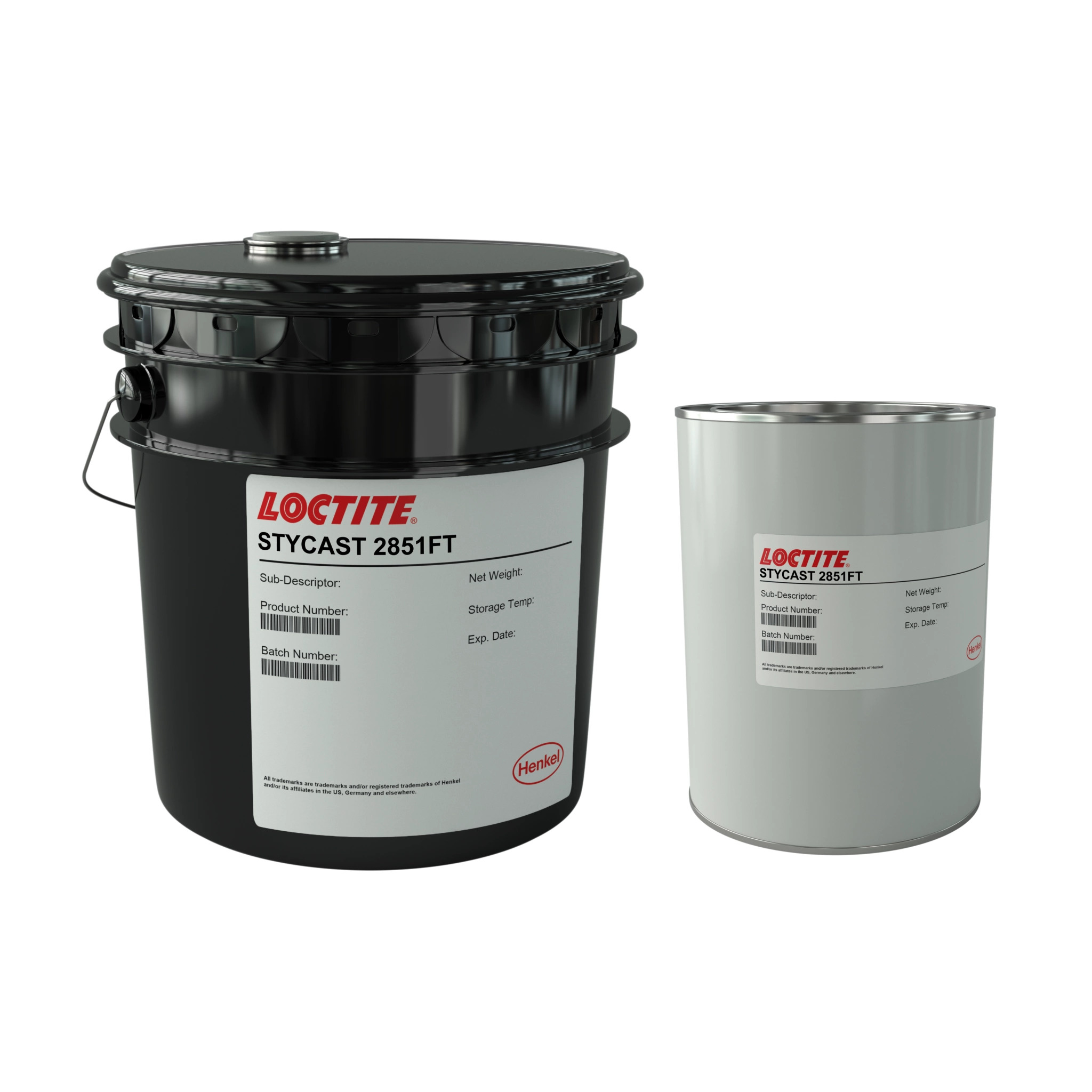LOCTITE STYCAST 2851FT
Harmonization Code : 3907.30.00.90 | Polyacetals, other polyethers and epoxide resins, in primary forms; polycarbonates, alkyd resins, polyallyl esters and other polyesters, in primary forms : Epoxide resins : Other
Main features
- Solvent free
- 100% solids
- Low temperature cure
Product Description
LOCTITE STYCAST 2851FT is recommended for encapsulation of components that require heat dissipation and thermal shock properties. It has a low coefficient of thermal expansion and exhibits excellent resistance to a wide variety of industrial chemicals and solvents.
LOCTITE STYCAST 2851FT is a one component, solvent free black epoxy with 100% solids content. It can cure in low temperatures and has high thermal conductivity and low thermal expansion. This encapsulant can operate in temperatures up to 170°C.
Cure Schedule
- 1 hour @ 120°C
- 2 hours @ 110°C
- 5 hours @ 90°C
Post Cure
- 4 hours @ 150°C will improve final end properties
Technical Specifications
| General Properties | |||||
| Specific Gravity Specific Gravity Specific gravity (SG) is the ratio of the density of a substance to the density of a reference substance; equivalently, it is the ratio of the mass of a substance to the mass of a reference substance for the same given volume. For liquids, the reference substance is almost always water (1), while for gases, it is air (1.18) at room temperature. Specific gravity is unitless. | 2.3 | ||||
| Physical Properties | |||||
| Viscosity Viscosity Viscosity is a measurement of a fluid’s resistance to flow. Viscosity is commonly measured in centiPoise (cP). One cP is defined as the viscosity of water and all other viscosities are derived from this base. MPa is another common unit with a 1:1 conversion to cP. A product like honey would have a much higher viscosity -around 10,000 cPs- compared to water. As a result, honey would flow much slower out of a tipped glass than water would. The viscosity of a material can be decreased with an increase in temperature in order to better suit an application | 85,000 mPa.s | ||||
| Chemical Properties | |||||
| Moisture absorption | 0.06 % | ||||
| Mechanical Properties | |||||
| |||||
| |||||
| Electrical Properties | |||||
| Volume Resistivity Volume Resistivity Volume resistivity, also called volume resistance, bulk resistance or bulk resistivity is a thickness dependent measurement of the resistivity of a material perpendicular to the plane of the surface. | 1.0x1016 Ohms⋅cm | ||||
| Thermal Properties | |||||
| |||||
| Thermal Conductivity Thermal Conductivity Thermal conductivity describes the ability of a material to conduct heat. It is required by power packages in order to dissipate heat and maintain stable electrical performance. Thermal conductivity units are [W/(m K)] in the SI system and [Btu/(hr ft °F)] in the Imperial system. | 1.36 W/m.K | ||||



